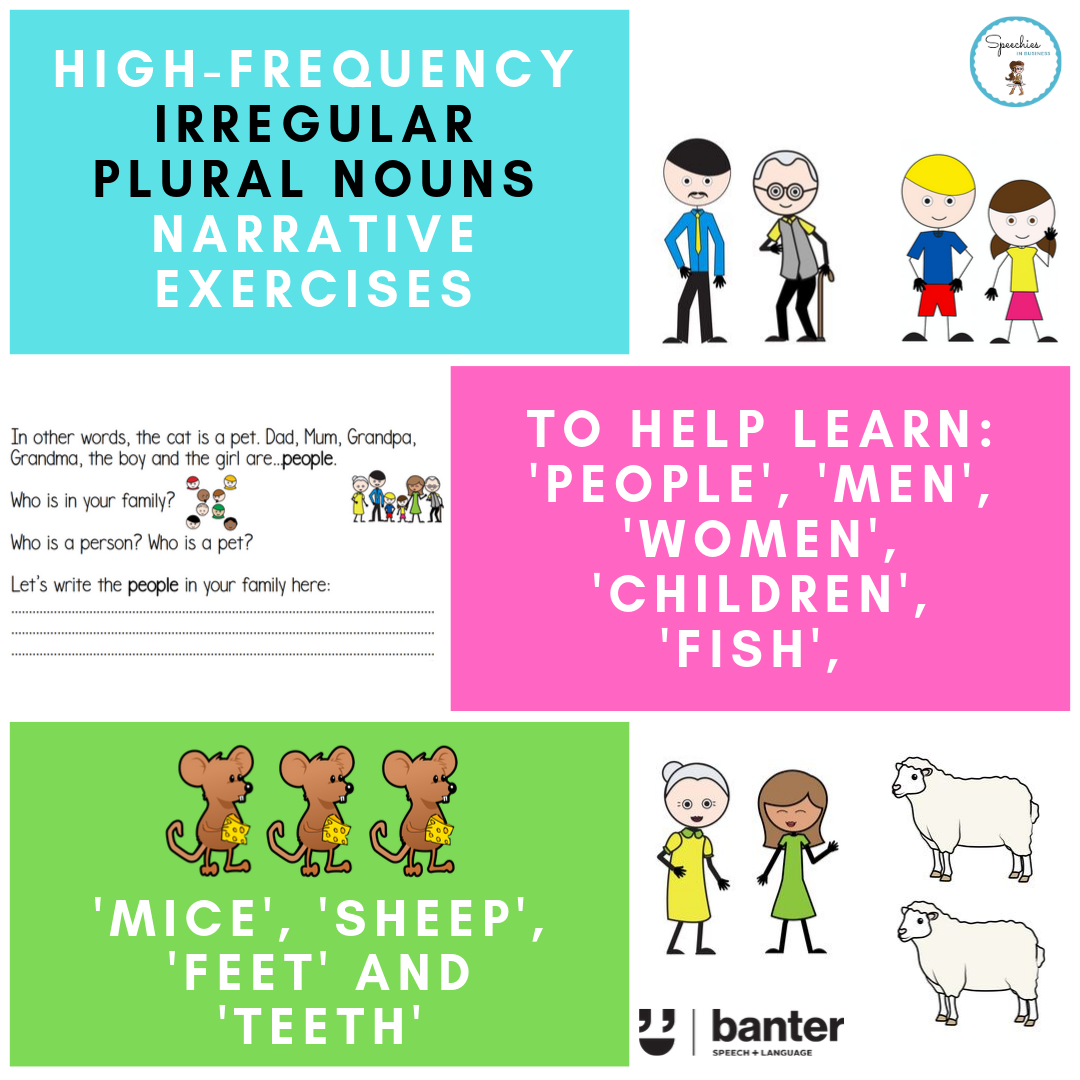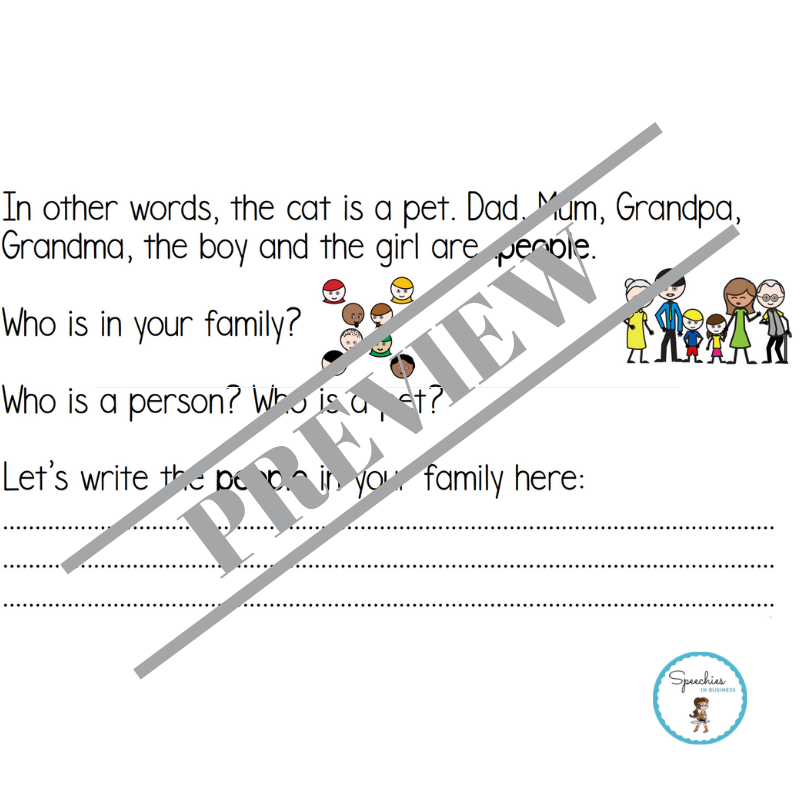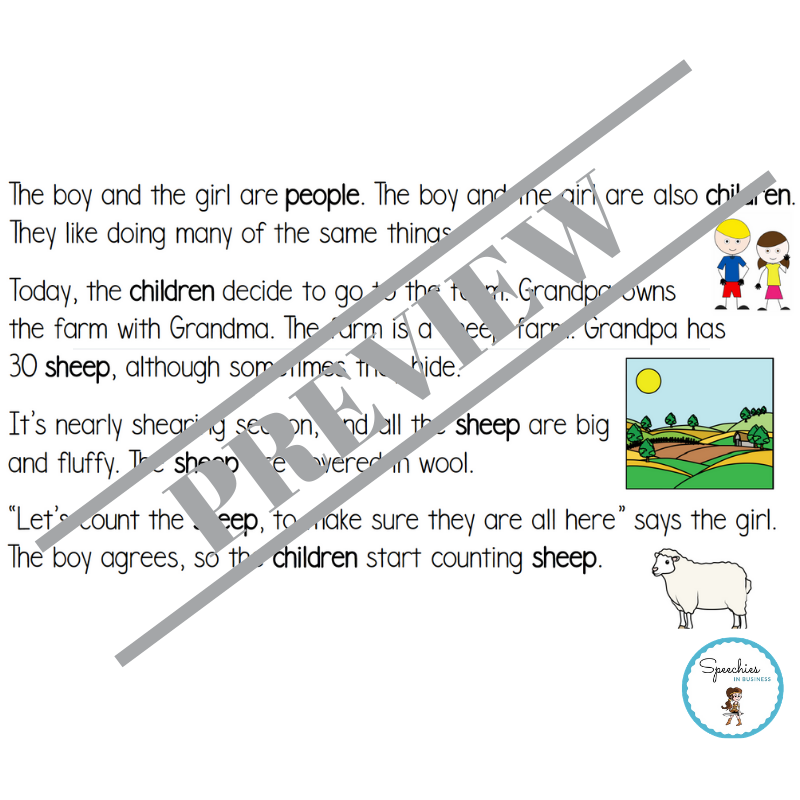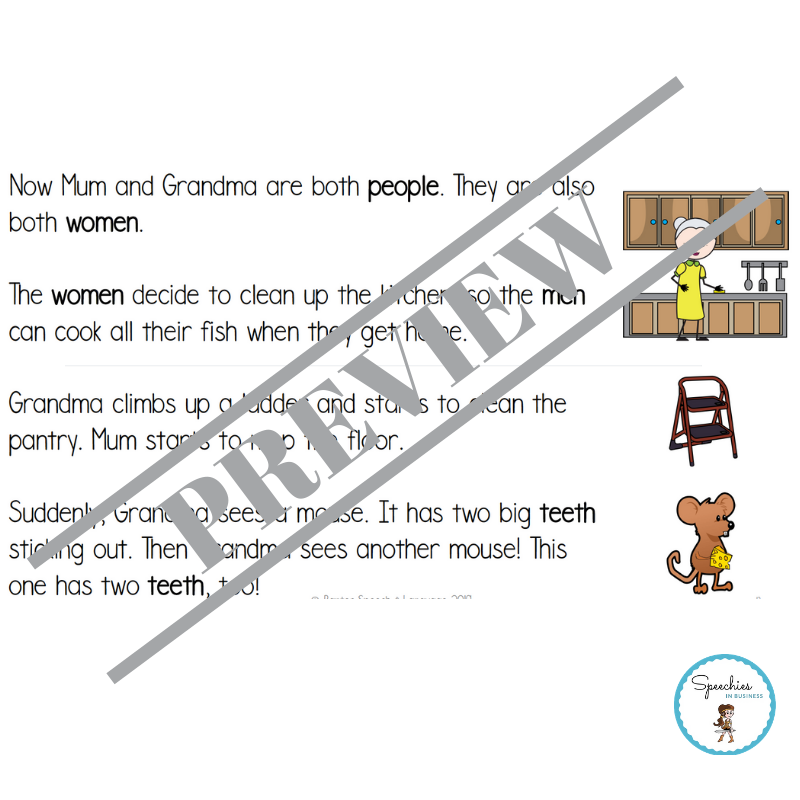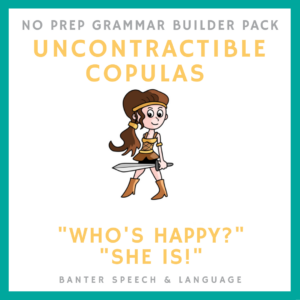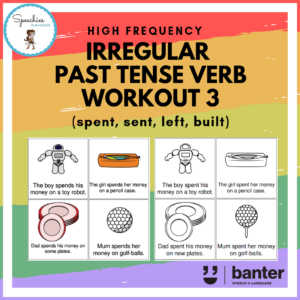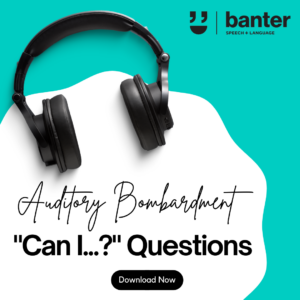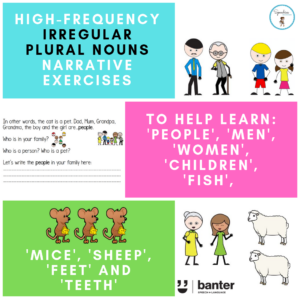(L150) Plurals: Irregular Plural Nouns (including people, men, women, children, teeth, fish)
$5.99 including GST
In this 19-page no-prep pack, we focus on nine of the more functional and frequent irregular plural nouns: plural nouns children are most likely to read about and to say at some point in their early years of school: people, men, women, children, fish, mice, sheep, feet and teeth.
To help students learn and to remember the word targets we have embedded them into a simple narrative, with lots of repetition of each target, and with simple pictures to support students to re-tell parts or all of the story.
Description
In English, we usually add -s to tell people we are talking about two or more of a given noun. For example, we say cups, goats, umbrellas or bees. You’ll note that some of these words end in an /s/ sound (like “cups” and “goats”) and others end in a /z/ sound, like “umbrellas” and “bees”, even though they are all spelled with an -s.
For singular nouns ending in “hissy” fricative sounds like /s/, /z/, “ch”, “j” sounds (including words ending in the letter <x>, the letters <ce> and the letters <ge> and <dge>, which all end in fricative sounds), we add -es, as in kisses, matches, sashes, boxes, faces, cages, and hedges. Though spelled with a <es> most of these words end in a /z/ sound.
For nouns ending in /f/, the /f/ usually changes into a /v/ sound to mark a plural version of the noun. This is usually spelled with a <ves>, reflecting the fact that, in English, words do not usually end in the letter <v>, e.g. hooves, wolves, leaves, knives, wives, lives, loaves, and shelves.
Most students pick up these patterns well before they start school (although some don’t, and the rules are applied slightly inconsistently in some places, e.g. some people in some places say “roofs” and “hoofs”).
Most new nouns in English follow these rules.
Unfortunately, there are some nouns – usually very old words – that don’t follow the normal rules. We call these “irregular plural nouns”, and they have to be learned. Most irregular plurals are very low frequency words, with limited usage or function for younger school-aged children. For example, the 18 most frequently used nouns we could find in English with irregular plural forms are as follows (number = the word’s frequency ranking according to the New General Service List of words used in English (Brown & Culligan, 2013)):
-
- person/people 45
- man/men 153
- woman/women 182
- child/children 183
- foot/feet 647
- fish/fish 959
- tooth/teeth 2,155
- mouse/mice 2,428
- sheep/sheep 3,081
-
- salmon/salmon 4,113
- fungus/fungi 4,725
- deer/deer 5,213
- di/dice 5,315
- moose/moose 7,851
- trout/trout 8,274
- cactus/cacti (or cactuses) 9,675
- louse/lice 10,427
- larva/larvae 11,983
Hardly a core vocabulary! But misuse of some of these words can make students sound less mature or even less intelligent than they actually are.
In this 19-page no-prep pack, we focus on nine of the more functional and frequent irregular plural nouns: plural nouns children are most likely to read about and to say at some point in their early years of school: people, men, women, children, fish, mice, sheep, feet and teeth.
To help students learn and to remember the word targets we have embedded them into a simple narrative, with lots of repetition of each target, and with simple pictures to support students to re-tell parts or all of the story.
We hope that you find this resource as useful as we do in our clinic.

